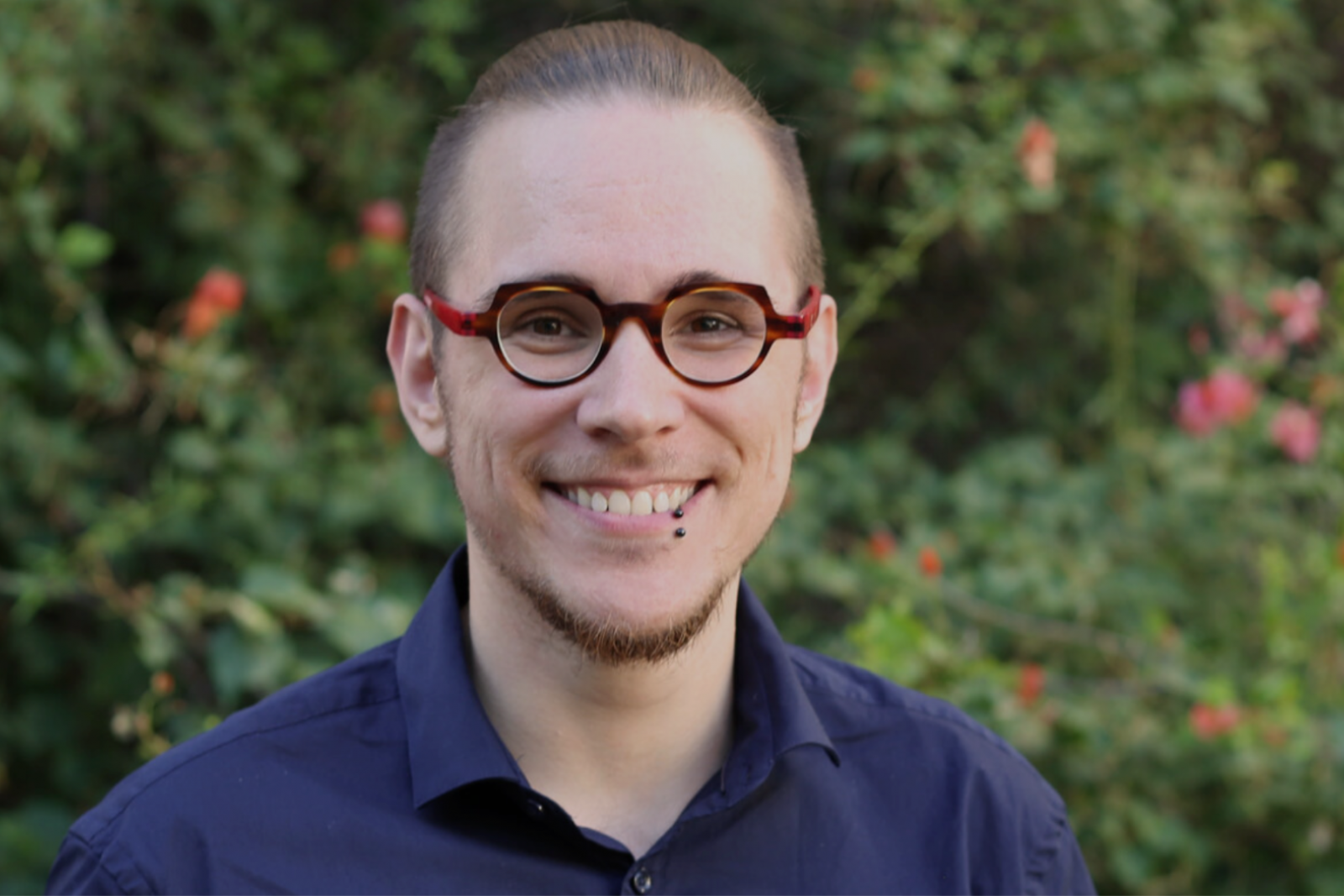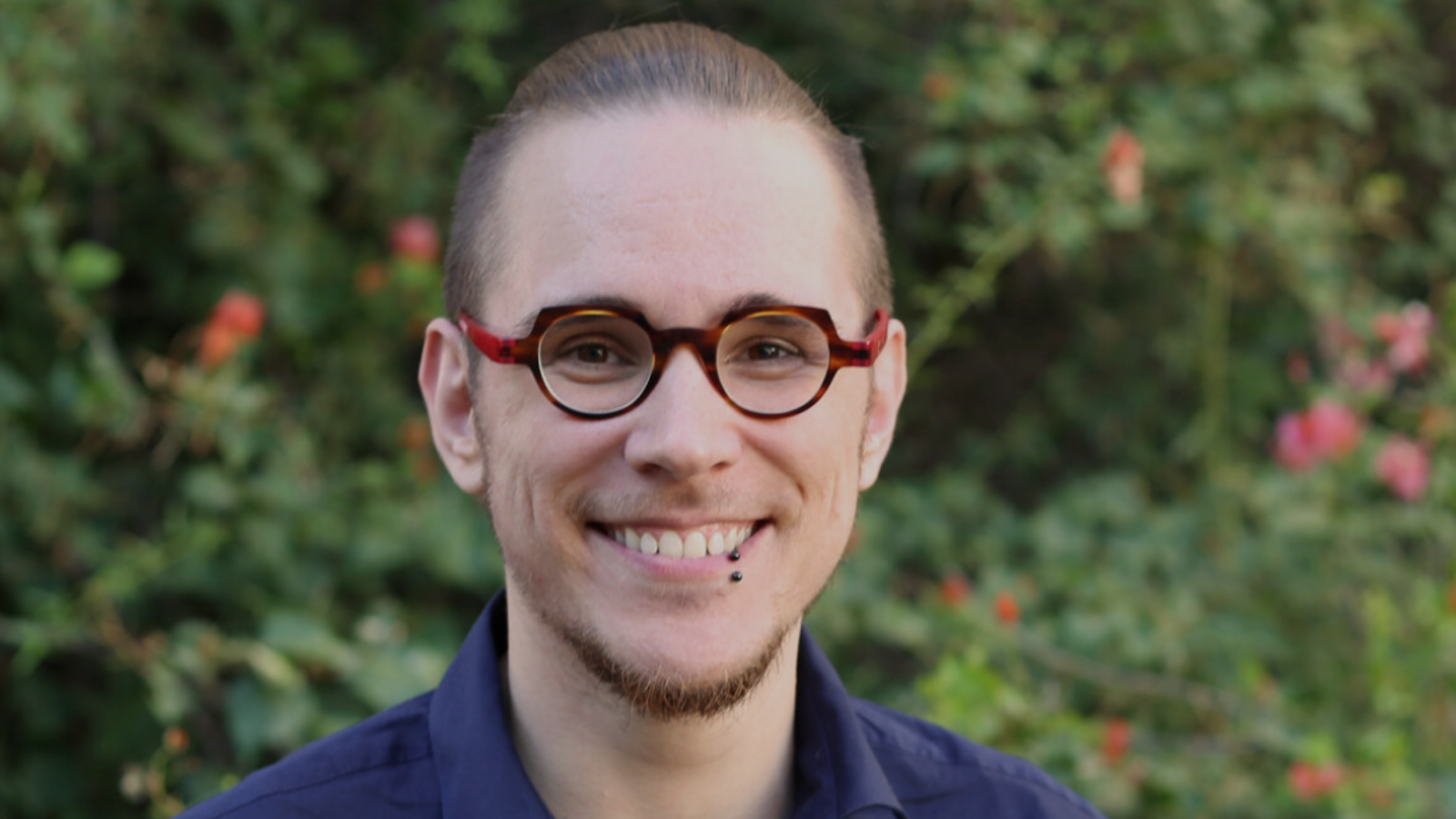
Language teaching and learning can be a site of expansive possibilities for identity (re)construction, despite the ways that gendered impossibilities and invisibilities have often been allowed to persist. In the context of scant attention to gender in the curriculum, textbooks, research, and pedagogy of language classrooms, this talk offers trans-affirming queer inquiry-based pedagogies as one path toward more critical, equitable, and gender-just language pedagogies. Research and praxis will be addressed and resources in a breadth of languages will be provided.
Kris Aric Knisely
Thursday, April 6, 2023
4:00-5:30 pm
Pre-registration Required: Registration Link
Lecture Abstract
Language education represents a site for identity (re)construction, mediated through the social and relational experiences of doing language with others and of learning to do language differently. Through acts such as speaking, reading, and writing, learners must linguistically position themselves and be positioned by others. In this way, language education encourages learners’ reflections on their own identities in relation to the broader social world. Although language learning allows students to (re)imagine, (re)invent, and explore new linguistic and cultural identities, there is often limited attention to trans knowledges and linguistic practices in the curriculum, textbooks, research, and pedagogy of language classrooms, leaving many educators to report feeling particularly un- or under-prepared to engage in teaching towards gender-justice. In following, this talk will invite reflection on possibilities for remaking, reimagining, and reinventing our language classrooms, materials, and pedagogical approaches to resist normativities and recenter trans knowledges without a hyperfocus on narratives of oppression. Together, we will consider how this ongoing process of queer and trans remaking, reimagining, and reinventing can help us to better serve all students, particularly in terms of increasing classroom inclusiveness, fostering tolerance of ambiguity, and the development of linguistic, symbolic, and intercultural competencies. As we illustrate and exemplify these discussions of gender-just language teaching, we will draw on Kris Knisely’s research with French language learners and nonbinary French languages. These examples will allow us to collectively consider the unique pedagogical opportunities that teaching trans knowledges and linguistic practices can afford when they are situated in a trans-affirming, gender-just pedagogical framework. Resources for a variety of languages will be provided.
—————————————————————————————————————————–
Sponsors
SHASS Dean’s Office
Global Languages
Women’s & Gender Studies
Literature
History
MISTI
MIT Libraries
Speakers

- Assistant Professor
Dr. Kris Aric Knisely is an Assistant Professor of French and Intercultural Competence as well as affiliated faculty in both SLAT and TSRC at the University of Arizona. Knisely’s research focuses on the interplay between the social, relational practices of doing language and doing gender, particularly as they relate to language education and to trans linguacultures. Dr. Knisely’s work has appeared in a variety of venues including Contemporary French Civilization, CFC Intersections, Critical Multilingualism Studies, Foreign Language Annals, The French Review, Gender and Language, and The Modern Language Journal, among others. Knisely is also co-editor (with Eric Russel, UC-Davis) of Redoing linguistic worlds: Unmaking gender binaries, remaking gender pluralities (Multilingual Matters).
